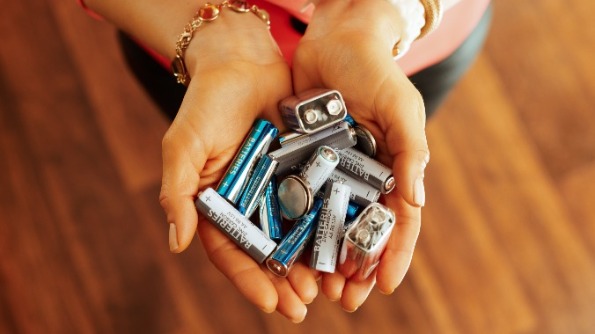
Introduction to Battery Waste
Batteries are an integral part of modern life, powering everything from mobile phones and laptops to electric vehicles and household appliances. While their convenience is undeniable, batteries also pose a significant environmental challenge when they reach the end of their life. Without responsible handling, discarded batteries can release harmful chemicals and metals into the environment, leading to pollution and potential health hazards.
Types of Common Batteries
There are various types of batteries, each with its own chemical makeup and potential risks if disposed of improperly.
- Alkaline Batteries: Widely used in household devices such as remote controls and clocks.
- Lithium-Ion Batteries: Found in smartphones, laptops, and electric vehicles, known for their high energy density.
- Nickel-Cadmium (NiCd) Batteries: Often used in power tools and older rechargeable devices.
- Lead-Acid Batteries: Common in cars, backup power systems, and certain industrial equipment.
Environmental Risks of Improper Battery Disposal
When batteries are thrown into general waste, they often end up in landfills where their outer casings can break down over time. This allows chemicals like lead, mercury, and cadmium to seep into the soil and contaminate groundwater. Such contamination can affect ecosystems, wildlife, and even human drinking water supplies. Moreover, certain batteries are highly flammable and can cause fires if damaged or exposed to high heat during waste processing.
Health Hazards Associated with Battery Waste
Exposure to toxic substances from batteries can pose serious health risks. For example, mercury exposure can damage the nervous system, cadmium can harm the kidneys, and lead can affect brain development in children. Workers handling waste are especially vulnerable if batteries are not properly separated from other refuse.
Recycling and Reuse Opportunities
Fortunately, many components in batteries can be recovered and reused. Metals such as cobalt, nickel, and lithium can be extracted and repurposed in new batteries or other products. Recycling helps reduce the demand for raw material mining, which itself has environmental consequences. For example, extracting lithium from used batteries is far less environmentally damaging than sourcing it from mines.
Government Regulations and Collection Programmes
In the UK and many other countries, regulations require battery producers and retailers to provide accessible collection points for used batteries. Local councils often run recycling schemes, and major supermarkets and electronics stores host drop-off bins. These initiatives make it easier for consumers to dispose of batteries responsibly without resorting to landfill disposal.
Best Practices for Storing Used Batteries
Before taking batteries to a collection point, it’s important to store them safely at home. Damaged or leaking batteries should be handled with gloves, and terminals on lithium-ion batteries should be taped over to prevent accidental short-circuiting. Storing them in a cool, dry place reduces the risk of leakage or fire.
Public Awareness and Education
One of the biggest challenges in tackling battery waste is ensuring people understand the environmental and health impacts of improper disposal. Public education campaigns, school programmes, and community workshops can play a vital role in changing behaviours. When people are aware of the consequences, they are more likely to participate in proper recycling practices.
The Role of Technology in Battery Waste Management
Advancements in recycling technology are making it more efficient to recover valuable materials from used batteries. Some companies are developing methods to recycle batteries with minimal energy input, reducing overall emissions. Others are working on creating batteries that use less toxic materials or are fully recyclable at the end of their lifespan.
Why Battery Disposal Should Be a Priority
As our reliance on battery-powered devices grows, so does the amount of waste they generate. Making battery disposal a household priority helps protect the environment, reduces the strain on natural resources, and prevents dangerous pollution. By taking small but consistent steps, individuals can contribute to a cleaner and safer world.
Where to Dispose of Batteries Responsibly
Many local recycling centres, retailers, and dedicated waste facilities offer free battery drop-off services. In the UK, the Recycle Now website provides details on the nearest recycling points. Choosing the right facility for battery disposal ensures that hazardous materials are safely managed and that recoverable materials are sent back into production. This not only reduces environmental impact but also supports a circular economy where resources are continually reused.
Conclusion
Proper battery disposal is more than just an environmental responsibility; it’s a safeguard for public health and a step towards a sustainable future. By understanding the risks of improper handling, participating in local recycling schemes, and spreading awareness, everyone can help reduce the harmful effects of battery waste. The simple act of recycling a used battery might seem small, but when multiplied by millions of people, it can make a significant difference for our planet.
